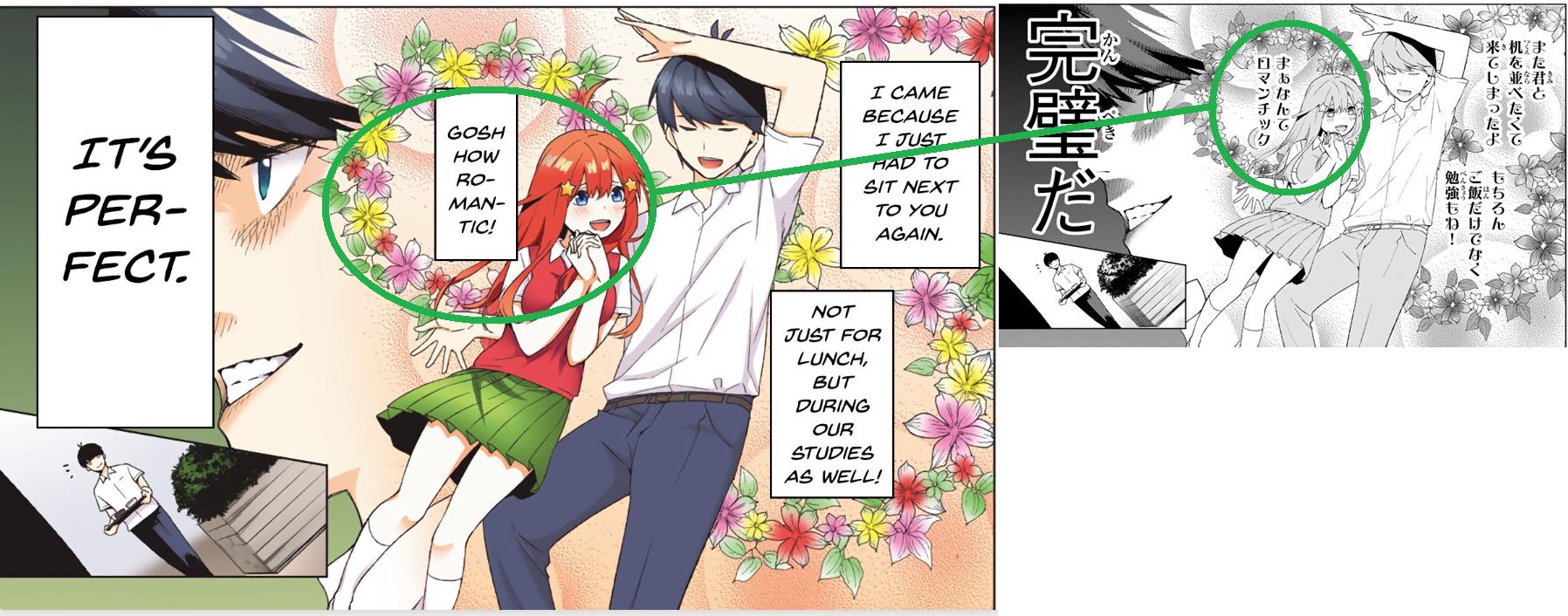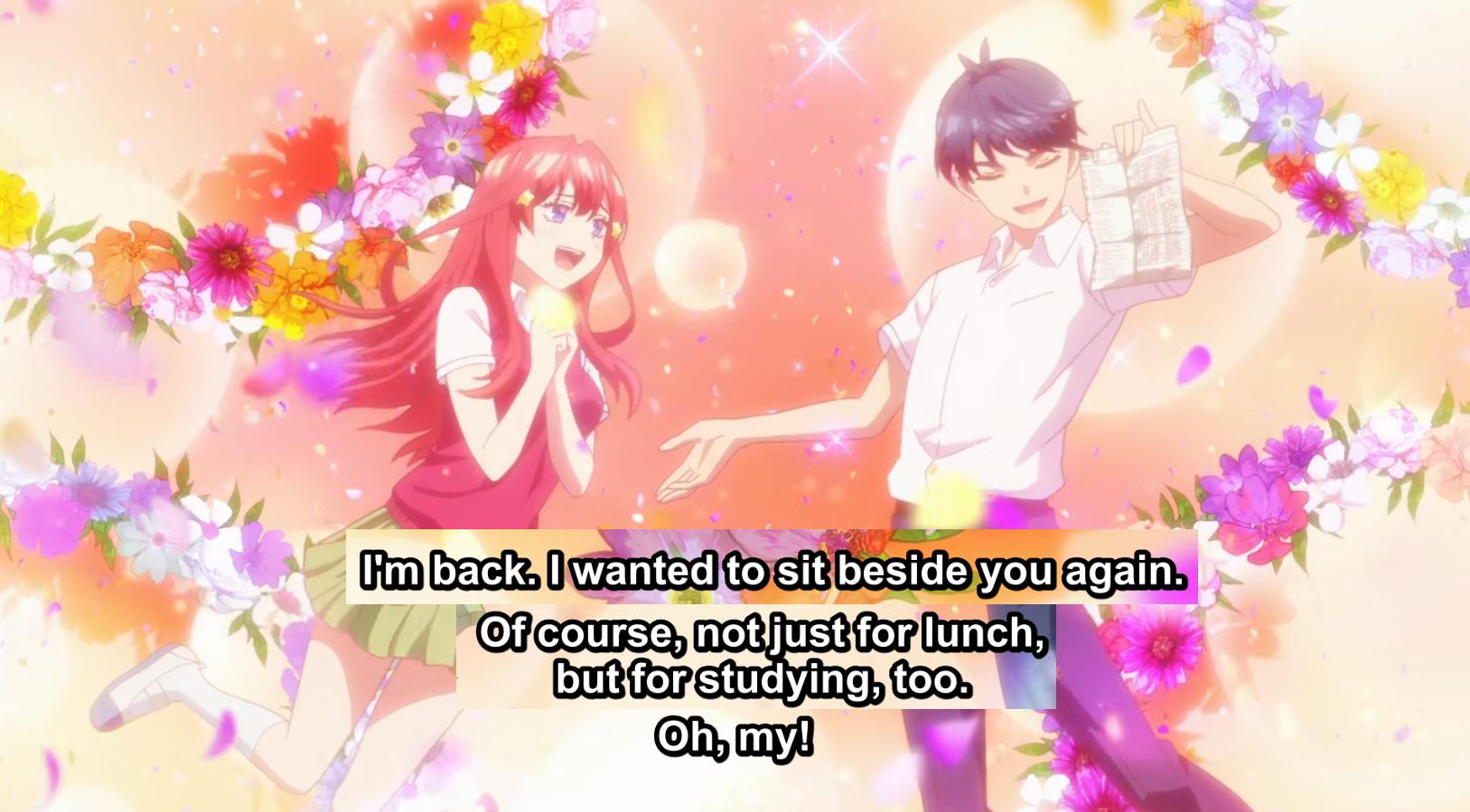From S01E01 / Ch1 of the anime/manga The Quintessential Quintuplets:
The male protagonist Fuutarou is supposed to be the new tutor of this transfer student, the female protagonist Itsuki, but in the following scene Itsuki doesn't know it yet. Yesterday they met each other without knowing their names before Fuutarou found out e's supposed to be Itsuki's tutor, and they got off on the wrong foot. Fuutarou imagines trying to make up with Itsuki.
In the manga:
In Fuutarou's imagination, Itsuki is saying 'まあなんて ロマンチック' which according to google translate says 'how romantic'...the same translation as 'なんて ロマンチック' (although I somehow conjecture the more literal translation, despite the katakana, is 'what romance' kinda like 'oh what fun it is to ride' ? Idk).
So, I guess 'まあ' means like 'gosh' which is what the following translation of the manga says:
In the anime:
This is shortcut to just 'まあ.' (See below, or see for yourself 1:54-1:56 here.)
My interpretation:
The adaptation is getting rid of the romance of this particular scene (not really because of [what I understand of] the Japanese language stuff because of the later plot in the manga).
Question: As for the Japanese language part...
Does まあ necessarily/usually have a romantic connotation? Or at least is まあ probably used romantically here anyway?


